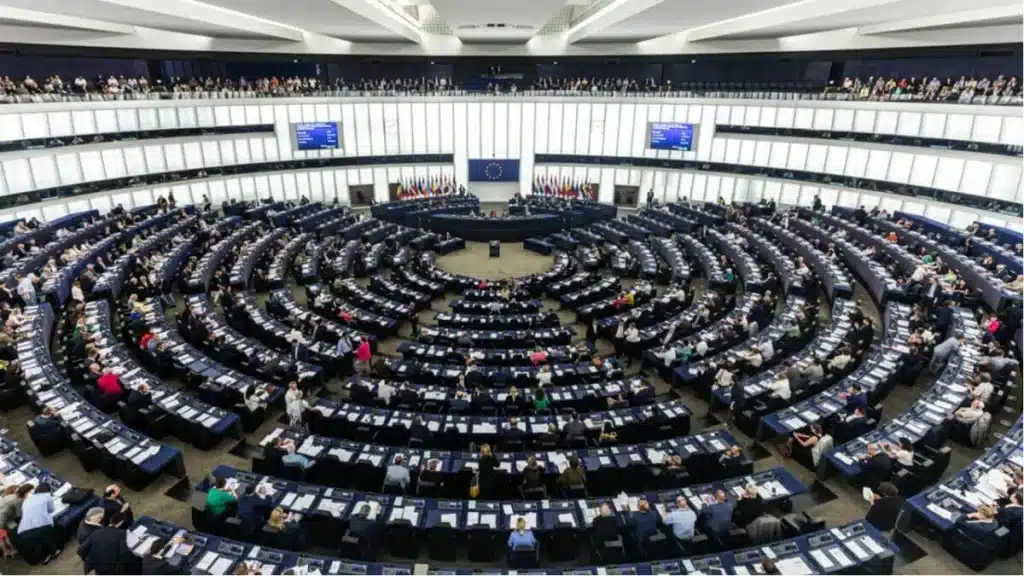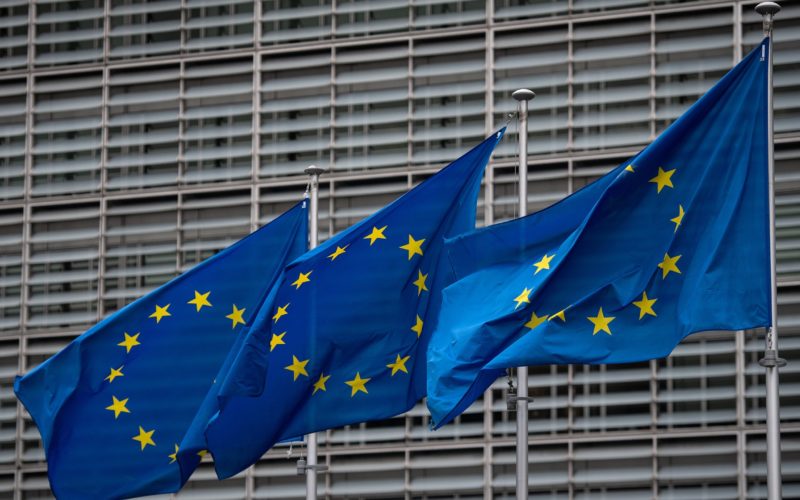The European Parliament is voting today (14/03/2022) on a major text for the European market: the draft European Regulation on the “crypto-asset markets” (MiCA). As you know, the fundamental point was the ban on bitcoin mining (Proof-of-work ban). This ban measure was carried by the socialist and green camp, which based on the ecological impacts of the PoW system. This provision was particularly criticized by the whole ecosystem. Understandable criticism when you know that Bitcoin and Ethereum are both (for the moment) based on it.
The answer was given today, as the vote took place around 2pm: the deputies finally voted against the PoW ban. More precisely, there were 32 votes “against” the ban and 24 votes “for” the ban.
We come back on the objectives of the text and on the main points adopted today.
What are the objectives of the “MiCA” project?
Many European states have implemented regulations dedicated to crypto-currencies. France “as early as” 2019 with the “PACTE” law that frames public token offerings (“ICOs”) as well as the activity of digital asset service providers (“DASPs”). Germany followed suit the following year with the adoption of a new licensing regime applicable from 2020 specifically for digital asset custody services. However, these national legislations have certain limitations: the rules they set out have no scope beyond the national territory.
Thus, the various European institutions, including the European Commission, have been campaigning since 2019 for the adoption of a set of common rules applicable throughout the European Union. The idea is therefore to create a harmonized legal framework at the European territory level for many crypto-assets that are not covered by European Union law.

What does the draft MiCA Regulation provide for?
The main focus was on the issue of the ban on the Proof-of-Work system.
This ban was the subject of much debate in the European Parliament, so much so that it was difficult to know in advance whether or not it would come into force definitively after this vote. Indeed, a few days ago, we informed you in a previous article that the clause banning PoW had been removed from the draft regulation – after having been included in January 2022. This announcement by Stefan Berger, Member of the European Parliament, was picked up by the whole press.
Finally, it was through a tweet last week from the MEP Pierre Person that the European crypto community learned of its reinstatement.
“The MiCa regulation will be voted on next Monday. As it stands, it definitively condemns the future of crypto-assets in Europe. By banning Bitcoin and Ether, by complicating the use of NFTs and DeFi, the European Parliament mortgages our monetary and financial sovereignty”
Tweet of Pierre Person
Since the announcement of its reinstatement, a real outcry has taken place. It is likely that it is because of this that the MEPs finally voted against the PoW ban.
Apart from this measure, the MiCA Regulation provides:
A set of definitions for different crypto-assets, including utility tokens and certain types of stablecoins.
A regime similar to the one we know in France (“PSAN”), specific to crypto-asset service providers at the European Union level (“PSCA”). This provision should bring legal security allowing them to better define their offer, to facilitate exchanges with economic partners (banks, insurers, etc.) or institutional partners (regulators). Unfortunately, this regime is largely inspired by the French PSAN model. This model is criticized for its slowness. This approval, although it brings legal security to the service provider and to the “consumer”, will necessarily slow down the development of crypto-companies established on the EU territory.
A specific regime for public offerings of various types of crypto-assets that are not already covered by this law (i.e. crypto-assets with the characteristics of financial or monetary assets). The Regulation provides for a mandatory, harmonized authorization regime valid throughout the European Union. This measure is intended to limit the phenomenon of “forum shopping” that takes place between the various states of the European Union.
When will it come into effect in France?

European directives must be transposed into national law before they can be implemented. It is during this process that certain modifications can be made to the text to take into account the specificities of the national territory to which it applies.
The text which carries MiCA is not a Directive, but a regulation! What is the difference?
The French Parliament will not have to ratify any transposition law and therefore will not have any say. However, within three months of adoption, the General Secretariat for European Affairs (SGAE), attached to Matignon, will set the schedule of measures to be taken with the various ministries and monitor the planned timetable.
However, it should be noted that while we should be pleased with today’s vote of the deputies, the text, although voted, can still evolve. Indeed, once voted, a dialogue must be engaged between the European Commission, the Parliament and the Member States.
We will keep you informed of the progress of these measures.




